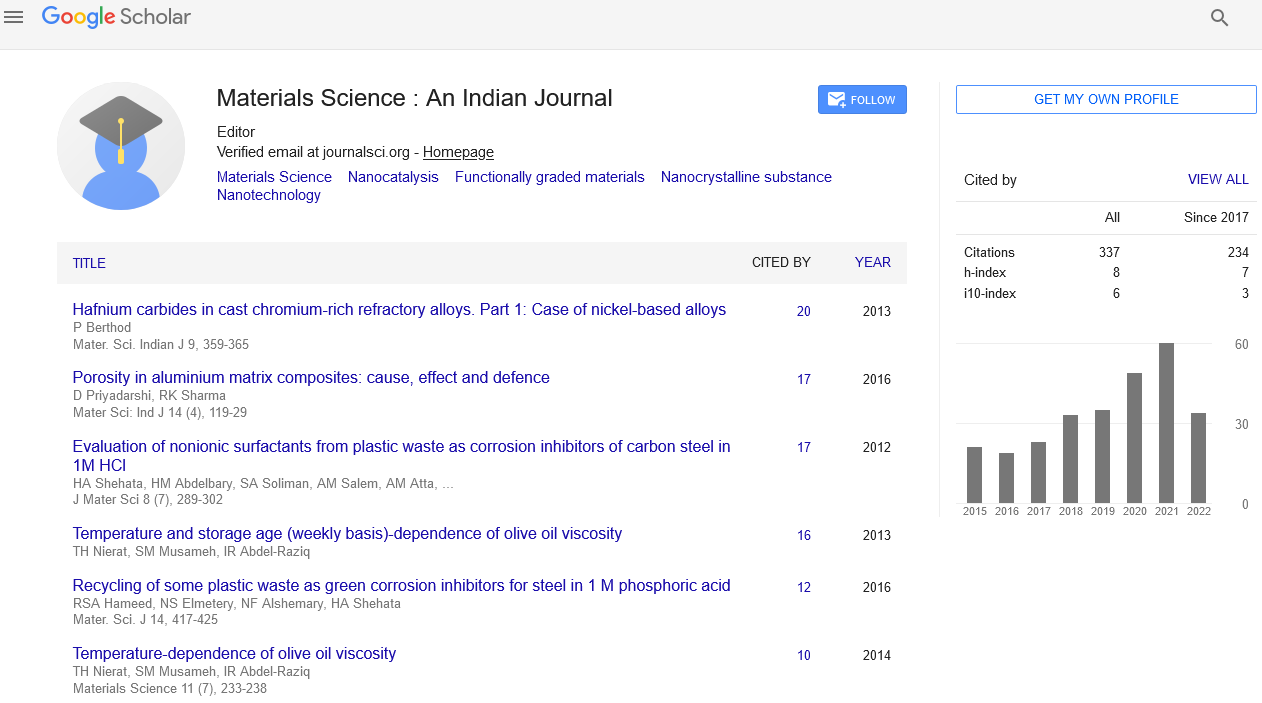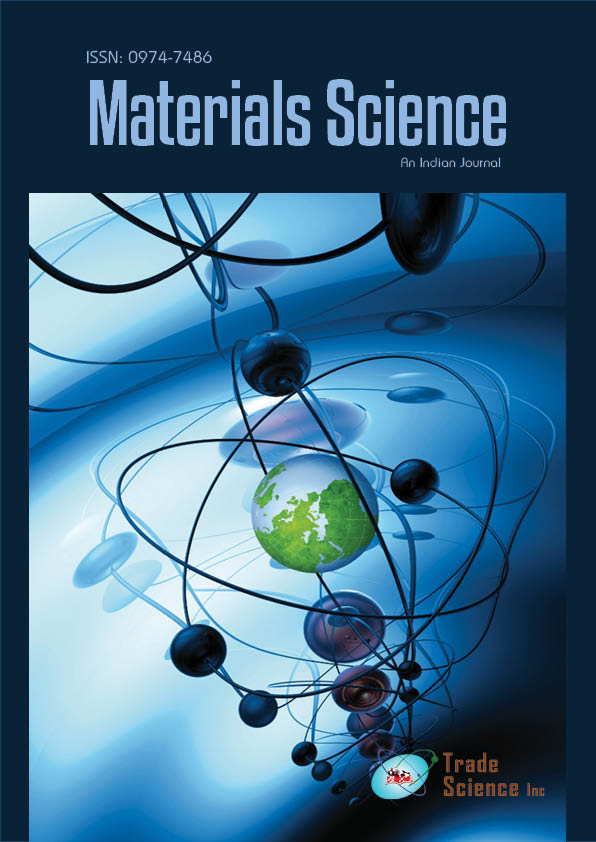Abstract
Preperation and characterization of high strength and high porosity porous spinel by decomposing an EX - POTATO known as starch soluble (C6H10O5)Nusing porous magnesia
Author(s): Kumar Saurav, Manas RanjanMajhi, Vinay Kumar SinghThe technique was applied to produce porous Spinel by decomposing an EX potato known as starch soluble (C6H10O5)n. Observations of the microstructure reveal variation in pore shape and size. Mean grain sizes are less than 70 nm. Mercury porosimetry measurements reveal a bimodal pore size distribution. A porous spinel body was fabricated from porous MgO using a Novel techniques. Porous MgO was synthesis by heating pellets (MgO:Potato Starch :PVA;60:30:10) at 1100 °C for 1h. The resultant porous MgO was then immersed in an 10mol/L aluminium nitrate solution, dried, and reheated at 1300 ºC for 2h to convert it to spinel. After five solution treatments The porosity, compressive strength, Permeability, Thermal conductivity, bulk density are calculated and finally spinel conversion ratio are studied. That by using (C6H10O5)n complex compound, a large fraction of pores can be generated and kept at high temperatures (1300°C) The starting materials for the Porous MgAl2O4 were synthesized via a sintering mechanism using poly vinyl alcohol and starch. Novel pore-forming agents, Poly vinyl alcohol as well as Magnesia were mixed via a sintering process and were used to fabricate porous spinel ceramics. PorousMgAl2O4 (spinel) ceramics prepared at different sintering temperatures is studied.

